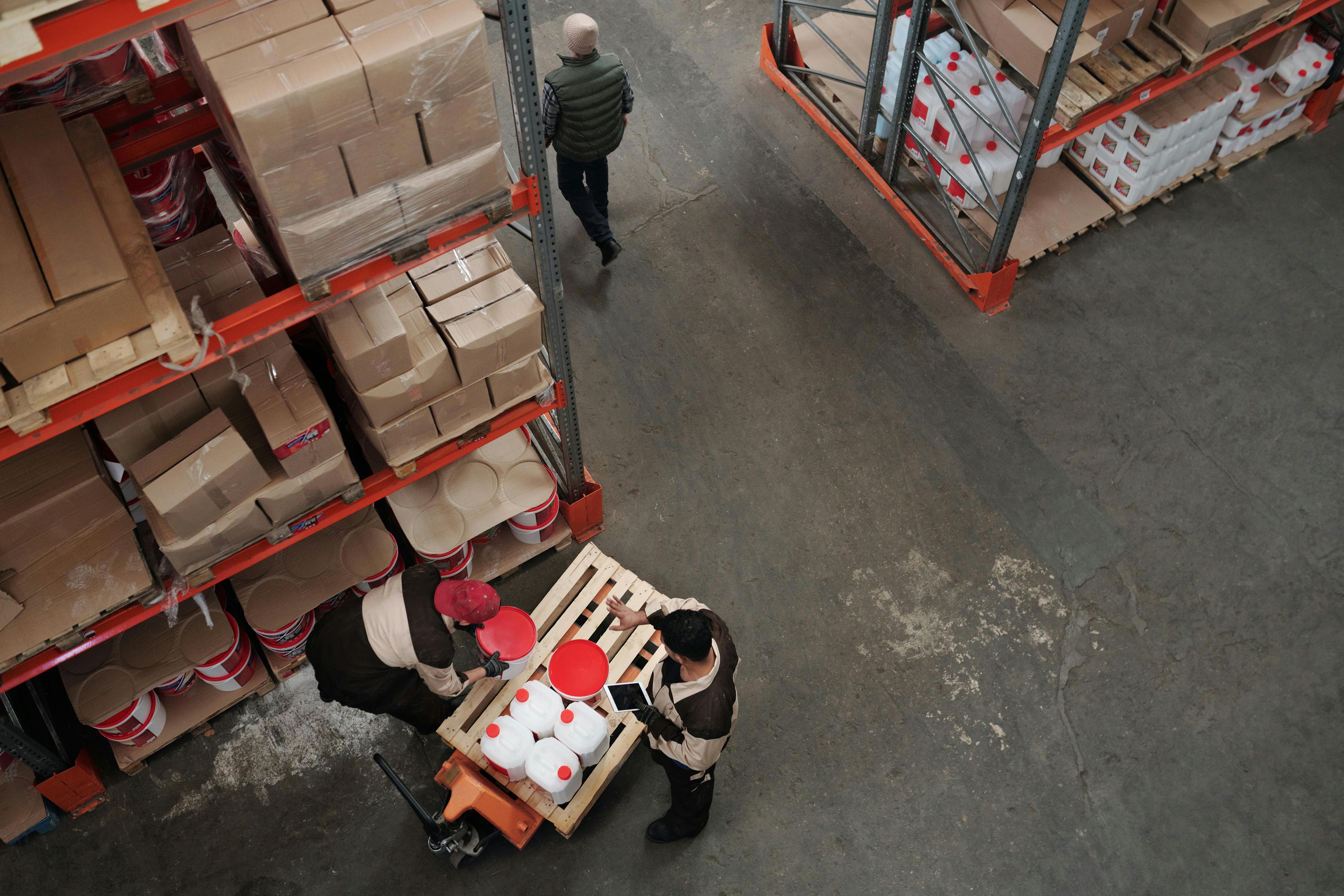Author: James Nolan — Senior Tech & Innovation Analyst at FinanceBeyono.
Exploring how emerging technologies like blockchain, AI, and quantum computing reshape global industries and modern economies.
Blockchain Beyond Crypto 2025: Real-World Applications Transforming Industries

Once synonymous with Bitcoin and digital speculation, blockchain technology in 2025 has evolved far beyond its cryptocurrency origins. Today, it forms the invisible backbone of new trust systems — powering supply chains, legal frameworks, health data exchanges, and even environmental sustainability tracking. The world no longer sees blockchain as “crypto tech,” but as an integrity infrastructure for the digital economy.
In this comprehensive analysis, we’ll explore how blockchain is quietly redefining industries that never cared about Bitcoin — from logistics and real estate to healthcare and governance — and why 2025 is the year when decentralization stops being a buzzword and becomes a business model.
From Speculation to Infrastructure
For years, blockchain was overshadowed by the noise of crypto markets — volatility, tokens, and NFT hype. But underneath, enterprises were quietly developing use cases that solve real-world inefficiencies. As the dust of speculation settles, blockchain’s next era is defined not by coins but by contracts — secure, traceable, and automated.
In 2025, blockchain technology is now embedded into core operations across industries. From verifying a medical record in London to tracking a shipment in Singapore, distributed ledgers offer something traditional databases cannot — mathematical trust. This new layer of verifiable truth is reshaping everything from legal accountability to product transparency.

Why the Shift Happened
Three major forces accelerated this evolution:
- Institutional Adoption: Governments and corporations began using private blockchains for data validation and compliance.
- AI Integration: Machine learning models now use blockchain data for tamper-proof training datasets and predictive analytics.
- Regulatory Maturity: International standards such as ISO/TC 307 have given blockchain a compliance framework, attracting traditional finance and law sectors.
The result? Blockchain is no longer a rebellion against the system — it’s the system’s next evolution.
Beyond Digital Coins: The Rise of Trust Protocols
To understand blockchain in 2025, you must forget the word “crypto.” Think of it as a digital notarization protocol — a way to prove ownership, authenticity, and sequence without human intermediaries. This subtle shift is what’s driving adoption in high-stakes industries like law, insurance, and logistics.
Smart contracts, the self-executing heart of blockchain systems, are now used not to trade tokens but to automate entire legal and financial workflows. Insurance claims, for example, can auto-validate conditions using IoT data. Real estate transfers finalize instantly once both digital IDs match on-chain.

The essence of blockchain’s second revolution lies in this principle: Every transaction becomes self-verifying, every record becomes self-protecting. This creates a transparent yet secure digital society — where integrity is built into the code, not enforced after the fact.
🔗 Related Reading: AI-Driven Financial Compliance | The AI Economy of Trust
Blockchain in Supply Chains: The Age of Radical Transparency
In 2025, one of blockchain’s most powerful transformations lies in logistics and supply chain management. Global corporations no longer rely on opaque vendor reports — they rely on on-chain proof of movement. From the moment a product leaves the factory to the second it reaches the customer, every step is immutably logged.
This transparency eliminates counterfeiting, speeds up recalls, and enables sustainable sourcing. Companies like Maersk, IBM, and DHL have integrated blockchain into their logistics frameworks, reducing paperwork, fraud, and human delays. A single digital ledger replaces hundreds of disconnected tracking systems.

Case Study: IBM Food Trust
The IBM Food Trust platform, powered by blockchain, allows retailers and consumers to verify the origin of food items instantly. Walmart now traces leafy greens back to farms in seconds instead of days. This traceability not only saves lives during contamination events but also restores consumer trust in global food systems.
This represents a deeper trend: blockchain transforming “trust” from a social promise into a technological guarantee.
Healthcare on the Blockchain: A Revolution in Data Ethics
Healthcare systems have long suffered from fragmented patient data, slow interoperability, and insecure record transfers. Blockchain now fixes this by enabling self-sovereign health records — digital files patients own and selectively share with doctors, insurers, or research centers.
Imagine switching hospitals or countries without losing access to your medical history. In 2025, pilot projects across the U.S., Europe, and the Middle East have proven blockchain-based health ledgers can reduce errors, lower administrative costs, and enhance privacy compliance under regulations like GDPR and HIPAA.

Smart Contracts for Medical Coverage
Insurance providers are also leveraging blockchain for instant claims processing. A hospital discharge automatically triggers a smart contract that verifies treatment data and processes payment without manual review — no paperwork, no delays, no fraud. This convergence of AI and blockchain marks the start of a new health-finance ecosystem.
🔗 Related Reading: AI-Powered Risk Assessment in Insurance | Smart Credit in 2025
Blockchain and Governance: From Bureaucracy to Integrity
Governments, traditionally resistant to transparency, are beginning to adopt blockchain to secure public records and eliminate corruption. Land registries in India and property databases in the UAE now record transactions immutably, reducing title fraud by over 60%. Every change in ownership is cryptographically timestamped and verifiable by anyone.
In Estonia, a global leader in digital governance, blockchain secures everything from national identity to healthcare access. It’s no longer just a tool — it’s the foundation of digital citizenship.

The same technology that once fueled speculative crypto markets is now used to ensure fair elections, auditable budgets, and fraud-resistant welfare distribution. As blockchain enters government systems, trust is shifting from institutions to infrastructure.
Blockchain in Law: Smart Justice and Automated Agreements
The legal system, one of the slowest to evolve, is now being streamlined by blockchain’s ability to create immutable, timestamped records and self-executing contracts. Smart contracts have become more than code — they’re now legally binding under frameworks emerging across the U.S., UK, and EU in 2025.
Law firms no longer rely solely on document storage systems; they leverage blockchain to maintain provable chains of custody, digital evidence, and contract histories. In disputes, blockchain provides an unforgeable audit trail that cuts litigation times by up to 40%.

Decentralized Legal Registries
Courts and registries are adopting decentralized ledgers to issue and track case filings, corporate licenses, and IP rights. The “legal blockchain” ensures every revision, evidence submission, and ruling is permanently verifiable — protecting both citizens and governments from tampering.
As Dr. Hannah Ross of the FinanceBeyono Law Desk notes, “Blockchain doesn’t replace lawyers — it replaces the friction that made law expensive.”
Real Estate: Instant Ownership and Trustless Transactions
The property market — once buried under endless paperwork and fraudulent listings — has embraced blockchain to bring instant verification of ownership. In 2025, tokenized real estate platforms allow fractional ownership of properties, audited and verified in real-time.
Countries like Sweden, the UAE, and Singapore have implemented blockchain-based land registries, cutting property transfer times from weeks to minutes. This technology turns deeds into living digital certificates, accessible globally and impossible to counterfeit.

Moreover, AI models trained on blockchain-verified data now predict property valuation trends and fraud risk with near-perfect accuracy — a new layer of intelligence that traditional systems couldn’t support.
🔗 Related Reading: AI-Driven Mortgages | The Future of Digital Lending 2026
Education & Credentials: The End of Fake Degrees
Education is another sector undergoing radical change. Blockchain-based diplomas and skill certificates eliminate credential fraud, ensuring employers can instantly verify a candidate’s qualifications anywhere in the world.
Universities such as MIT and Oxford have already issued on-chain degrees, enabling a global verification network for academic and vocational achievements. Students now own their credentials directly, stored in secure digital wallets — a step toward academic sovereignty.

AI Integration and Quantum Security: Blockchain’s Next Frontier
The synergy between blockchain and artificial intelligence defines the next decade. AI brings automation and decision-making; blockchain ensures the integrity of the data driving those decisions. Together, they form a secure feedback loop for autonomous systems — from self-driving vehicles to decentralized finance (DeFi) risk engines.
But as data encryption advances, so do threats. Quantum computing looms as a double-edged sword — capable of breaking today’s cryptography but also enabling quantum-secure blockchain models. Companies like IBM and Quantinuum are already testing hybrid networks that combine quantum key distribution with decentralized ledgers.

In this new environment, the blockchain isn’t just a digital ledger — it’s a global nervous system for machine trust, forming the ethical and technical backbone of Industry 5.0.
The Road Ahead: Blockchain’s 2030 Vision
As we approach 2030, blockchain will no longer be viewed as a “technology” but as a structural layer of civilization. Much like the internet did in the 1990s, blockchain is now forming the connective tissue for global systems — legal, financial, and ethical.
Industry experts predict that by 2030, over 60% of Fortune 500 companies will operate partially or entirely on decentralized infrastructure. Digital identity, sustainable energy grids, and autonomous trade routes will all depend on transparent, tamper-proof ledgers that keep humans accountable to their own algorithms.

The Remaining Challenges
Despite its progress, blockchain still faces barriers:
- Scalability: Transaction speed and energy consumption remain major bottlenecks.
- Interoperability: Hundreds of private chains need standardized bridges to communicate efficiently.
- Regulatory Uncertainty: Diverging international laws may hinder cross-border adoption.
- Human Trust: The biggest challenge isn’t code — it’s convincing society to trust systems without intermediaries.
Yet, every transformative technology begins in friction. As governments and corporations collaborate to unify frameworks, blockchain’s integration will become as invisible — and indispensable — as Wi-Fi.
Case File: The Dubai Blockchain Vision
Perhaps no example captures blockchain’s real-world transformation better than Dubai’s Smart City Initiative. By 2025, the UAE government had successfully migrated over 50% of its services — including visa issuance, property transfer, and business registration — onto blockchain infrastructure.
This move saved an estimated $1.5 billion annually in operational costs, cut bureaucracy times by 70%, and virtually eliminated document fraud. It stands as a model for how blockchain, when paired with political will, can redefine governance itself.

The success of Dubai’s initiative has inspired similar programs in Singapore, Saudi Arabia, and Japan — where blockchain is not seen as a product but as a digital trust policy.
The Final Shift: From Centralization to Confidence
The story of blockchain’s rise is not about technology alone — it’s about the reprogramming of trust. When value, identity, and information are secured by code instead of contracts, societies begin to function on mathematical fairness rather than institutional faith.
As we stand on the edge of the next decade, blockchain represents not rebellion, but renewal: the creation of a transparent digital future where truth isn’t told — it’s verified.
📁 Case File: Blockchain Beyond Crypto (2025)
- Core Insight: Blockchain has evolved from financial speculation into a universal infrastructure of digital integrity.
- Key Sectors: Supply chain, healthcare, law, real estate, education, and governance.
- Global Impact: Transparent, borderless trust systems redefining accountability and innovation.
- Future Outlook: Integration with AI and quantum systems will turn blockchain into the ethical backbone of Industry 5.0.
🔗 Continue Exploring: The AI Economy of Trust | AI-Driven Financial Compliance | AI-Powered Risk Assessment
Sources & References
- World Economic Forum. (2025). Blockchain Transformation Report.
- IBM Food Trust. (2024). Blockchain in Supply Chain Transparency.
- Dubai Blockchain Strategy. (2025). Smart Government Office, UAE.
- European Union. (2025). AI & Distributed Ledger Integration Guidelines.
- Harvard Business Review. (2025). The Future of Decentralized Trust.
